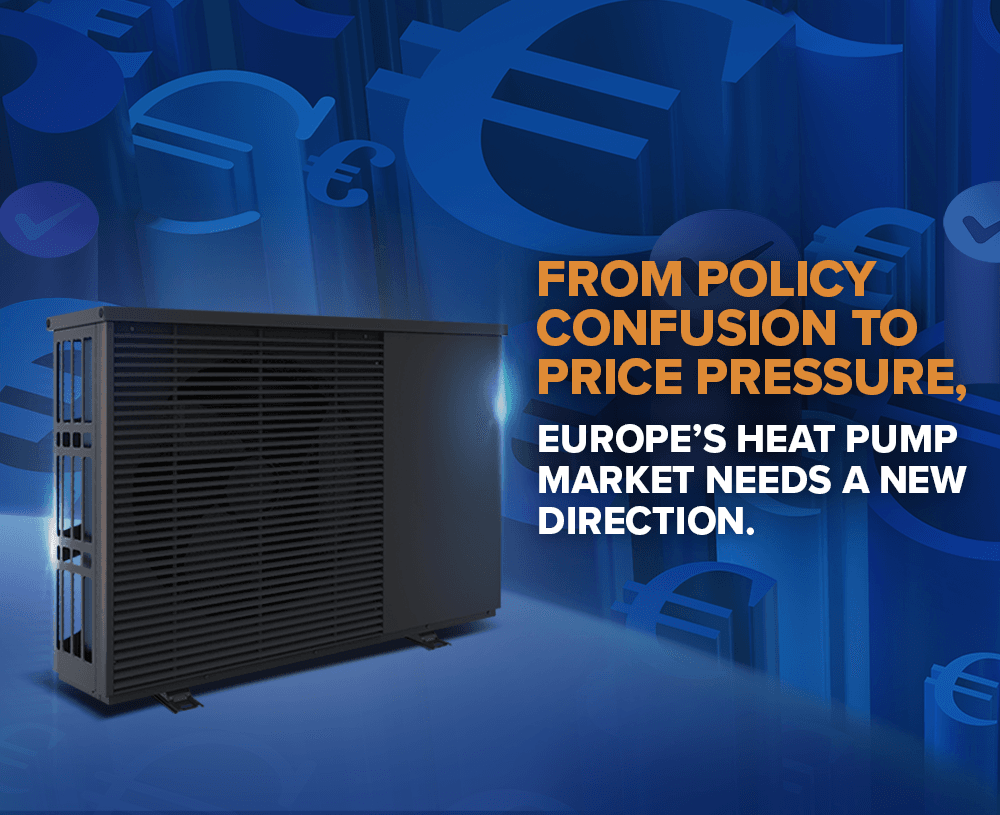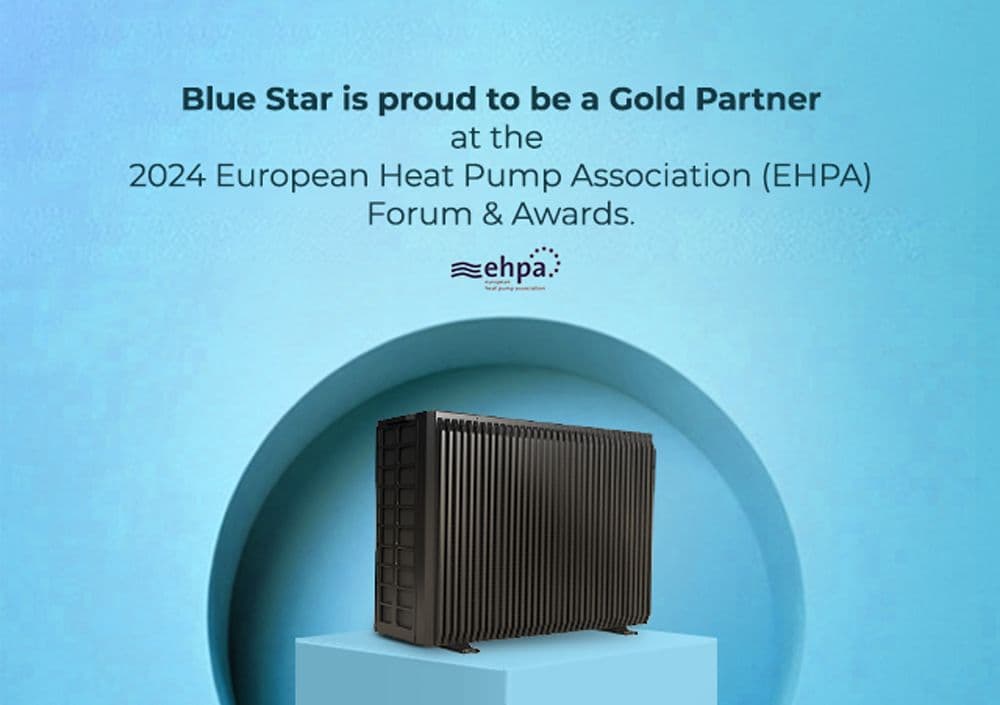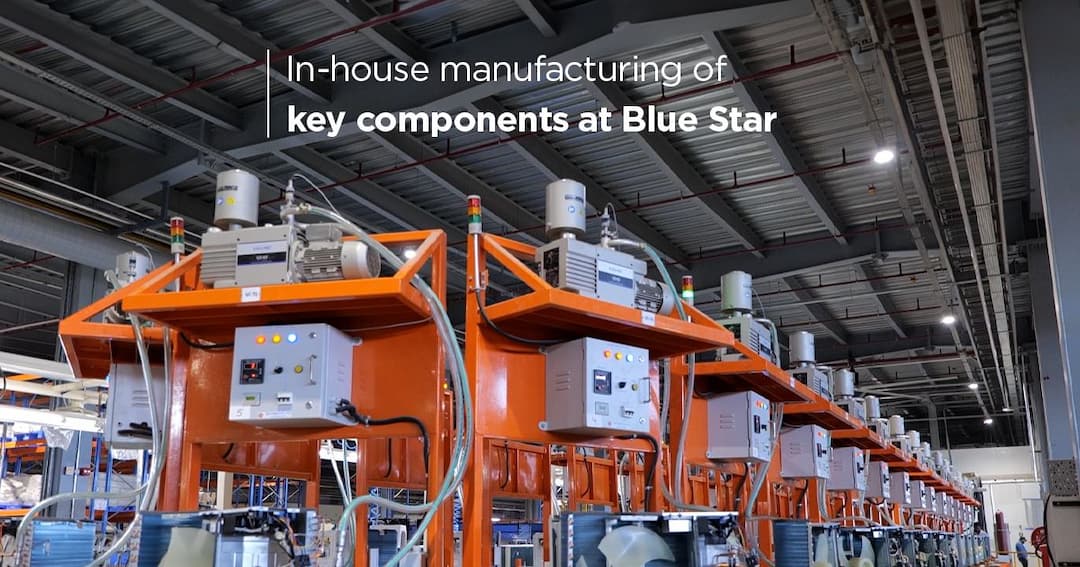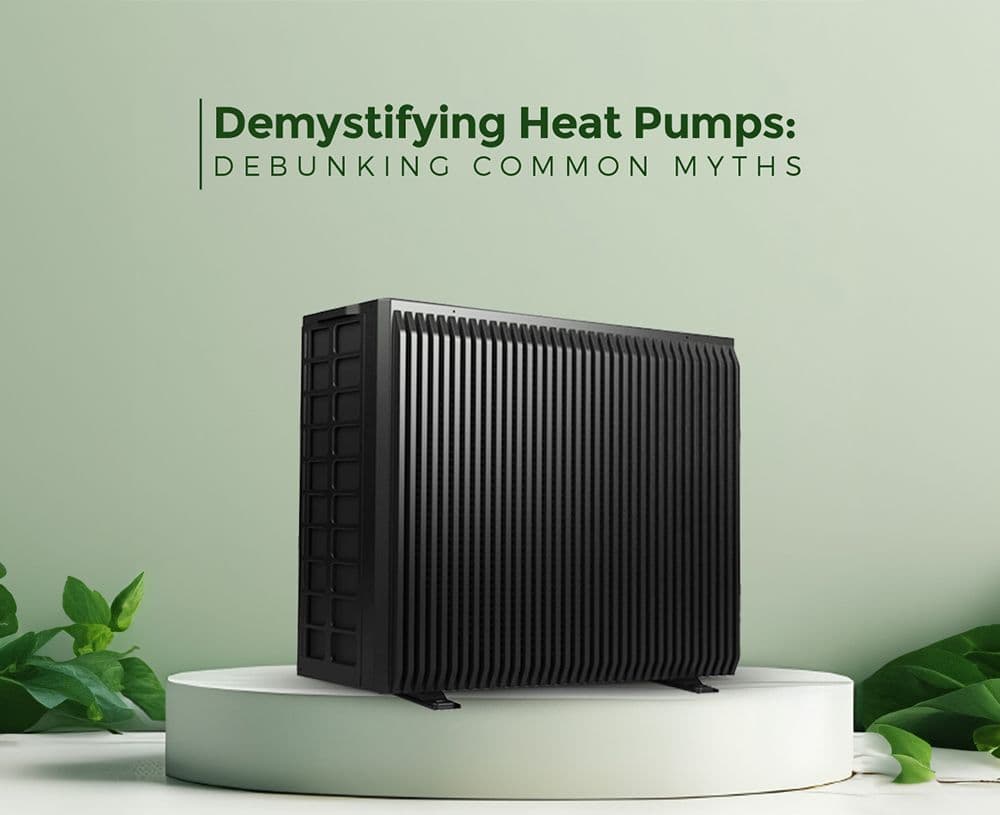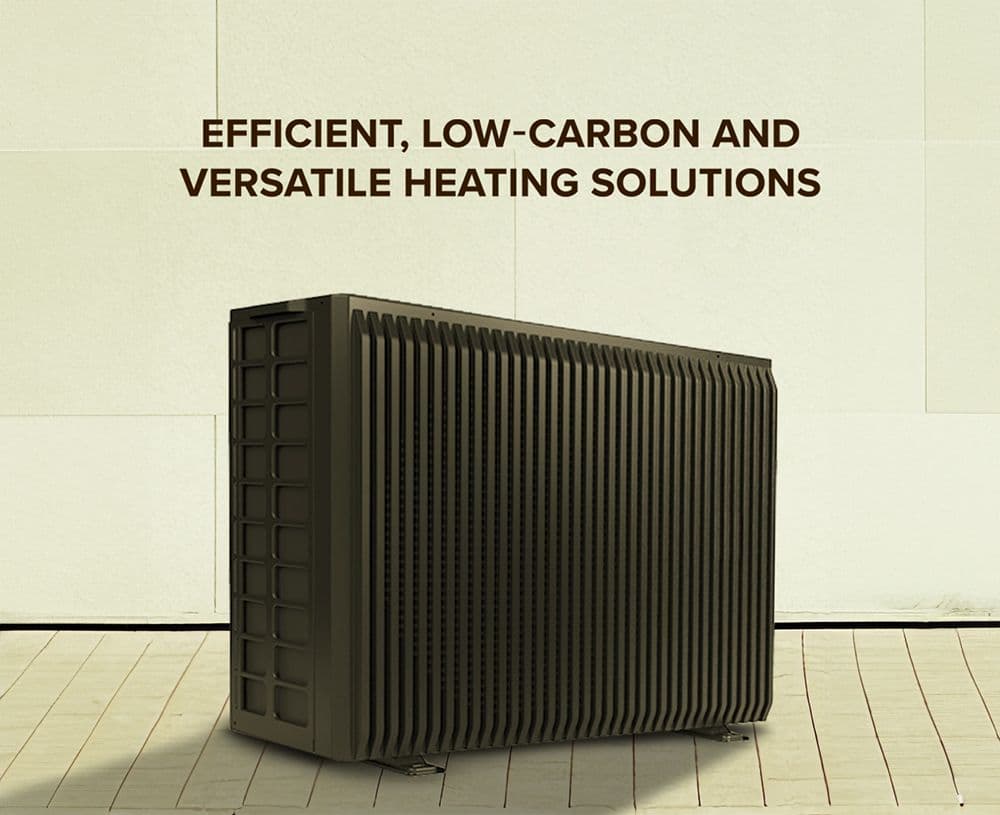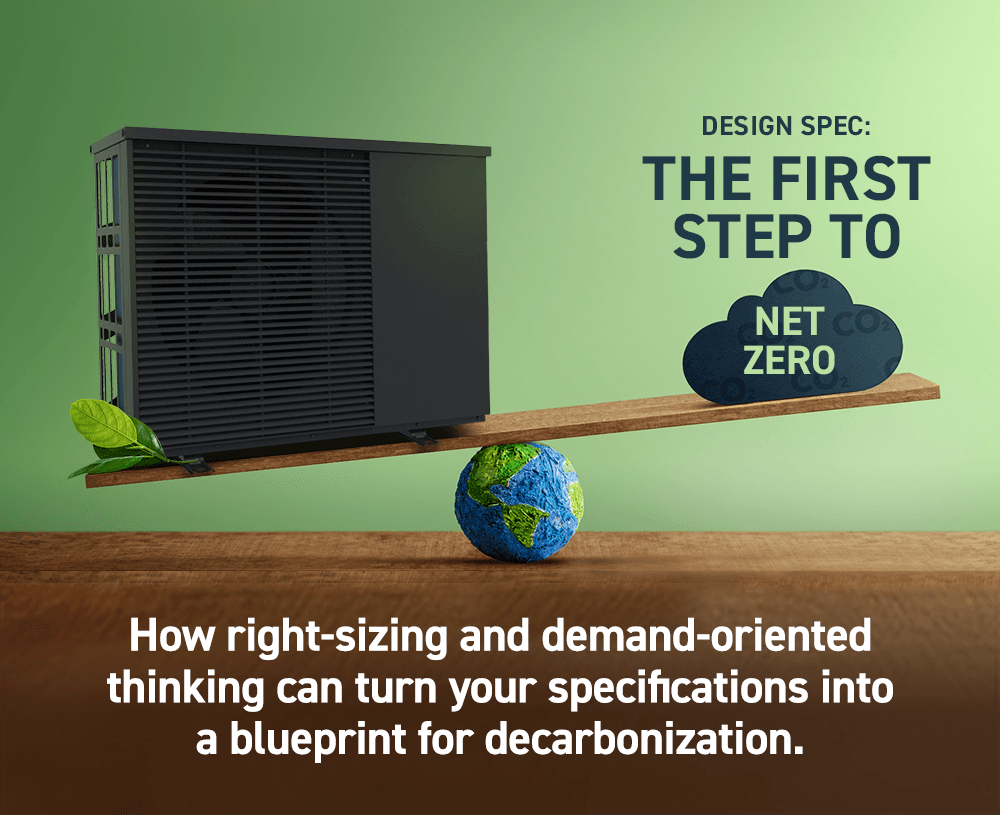Hybrid Heat Pumps: The Key to Decarbonising European Heating Systems
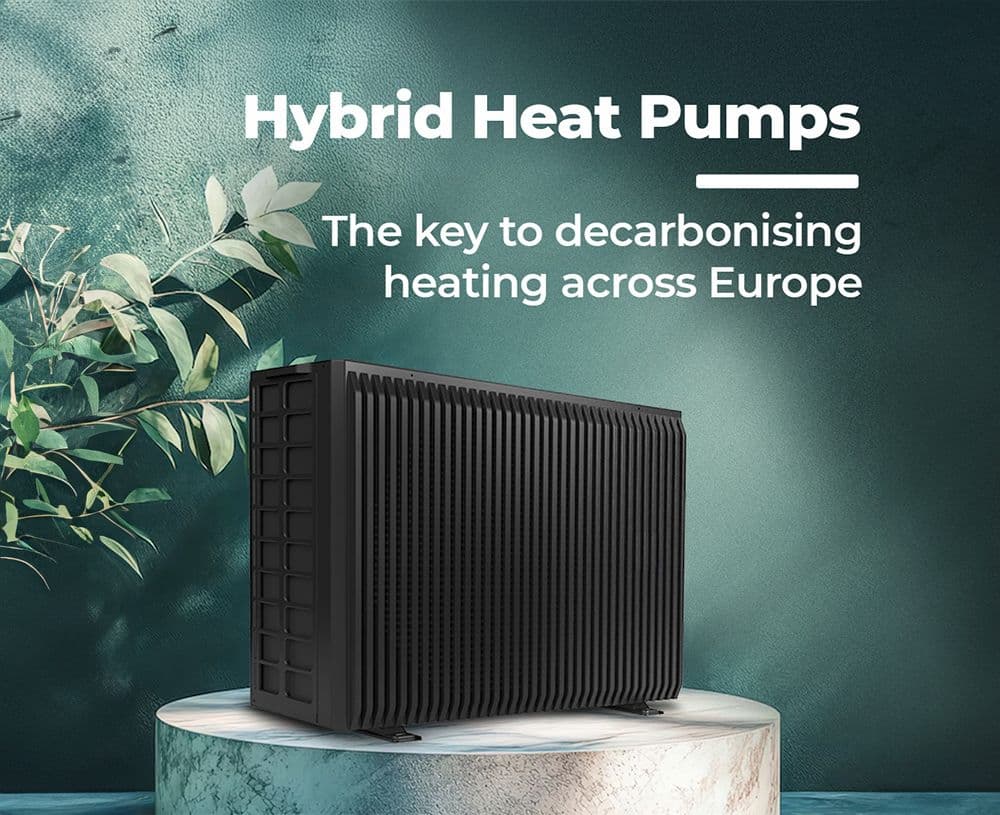
Blue Star explains why hybrid heat pumps offer a route to decarbonised heating and hot water across Europe and why manufacturers should move quickly to take advantage of this technology’s opportunities.
As a global leader in HVAC product development, Blue Star understands how quickly manufacturers must adapt to today’s shifting regulations and market trends.
With a strong presence in Europe, the Americas, the Middle East, and Asia, Blue Star is well-versed in the regional complexities of decarbonising heating systems.
Our Custom Design Manufacturing (CDM) service helps manufacturers respond swiftly to these changes, providing tailored product development that meets both market and regulatory demands.
To meet its 2030 emissions reduction target, the EU must double the annual reduction rate it achieved between 2005 and 2020. This accelerated pace is putting heating systems firmly in the front seat of change. Heating and cooling account for half the EU’s final energy use – with heating representing the largest share at 60%. That figure has remained static for the past ten years, despite numerous EU and national strategies to shift the numbers. Decarbonising heating is therefore a critical objective for the EU.
Heat pumps will play a key role in delivering the EU’s targets on decarbonised heat in homes. The EU aims to double the rate of uptake of individual heat pumps, targeting 10 million additional heat pump installations by 2027.
In 2029, the EU is phasing out stand-alone boilers, which it believes will drive the market to deploy at least 30 million additional heat pumps by 2030. One important point to note is that the EU projections say that most of these will be hydronic and include hybrid heat pumps.
The Association of the European Heating Industry (EHI) describes hybrid heat pumps as a “no-regret solution for the decarbonisation of buildings”. They also offer a way into the heat pump market for boiler manufacturers looking to transition into the sector.
Depending on system design and operation, hybrid heat pumps can reduce gas consumption by 60% to 90% compared to a boiler-only system. They are an attractive solution for consumers because they are suitable for different building types. They also require far less disruption to install and often cost less than ½ the price of an air to water heat pump only heating system.
Hybrid heat pumps also provide an excellent solution for older, poorly-insulated buildings where a heat pump-only system is not practical. This is a huge potential market across the EU, where older buildings dominate the residential sector.
In Italy, France and The Netherlands, households can access a range of grants or subsidies for the installation of hybrid heat pumps. In the UK, the Boiler Upgrade Scheme doesn’t currently include hybrid systems but the industry is lobbying for a change to this policy.
There is no avoiding the news that in the past year, heat pump sales across Europe have dropped. The EHPA reported a 6.5% drop in sales between 2022 and 2023. That change has been attributed to falling gas prices, making householders less likely to consider electric heating.
However, the whole of Europe is already making an energy transition away from fossil fuels to green electricity generation. EU member states are required to increase their national share of renewable energy sources for heating (and cooling) by 1.1% per year but some are setting their targets hither. Germany is targeting 80% renewable electricity by 2030; and France is targeting 41% in its final energy consumption by 2030. The UK is aiming to decarbonise its energy by 2030.
It’s clear that the future lies in residential electric heating that’s also highly energy efficient. Heat pumps provide the ideal way forward, but persuading households across Europe is key to delivering this aspiration. As we make that shift to renewables, households will inevitably face rising and uncertain energy costs. Hybrid systems provide a pathway between our present fossil fuel reliance and the electric future.
For boiler manufacturers, the hybrid approach offers an opportunity to expand their product range to the entire European market. However, finding the expertise required to design hybrid heat pump products is a challenge.
Blue Star’s Custom Design Manufacturing (CDM) service is designed to address this problem. Our teams of engineering and product design experts work with manufacturer clients to develop unique solutions that will meet the needs of their target market. This is not simply product re-badging; it’s a bespoke solution that de-risks the process of new product development.
With opportunities in hybrid heat pump systems on the horizon, it’s vital for manufacturers to move quickly to capitalise on the changing market.
Blue Star brings engineering insights backed by in-house research into areas such as low-GWP refrigerants to help clients deliver new product lines. This reduces the time to market and allows our clients to get ahead of the opportunities.
